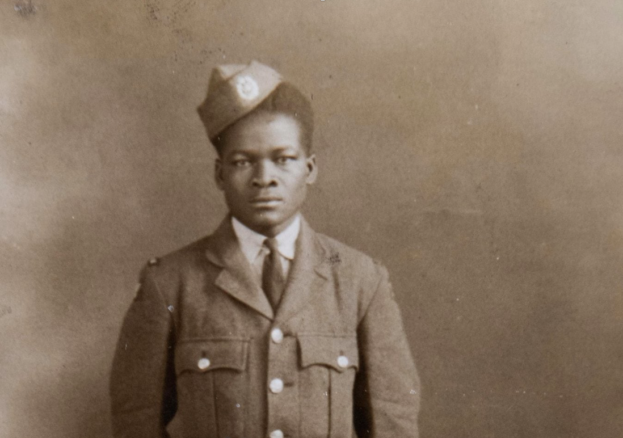
In 1942, after three years of war, the situation looked bleak for the Allies. Britain reached out to the Commonwealth countries and Albert Jarrett, a 17-year-old Jamaican joined the RAF along with his best friend. Albert’s father had already decided on his son’s future, but Albert wanted something different and says joining up ‘was the best thing I ever did in my life’.
After training for nearly a year in Jamaica, Albert boarded a troopship collecting West Indian recruits from the different Caribbean Islands. Then, travelling in the centre of a large convoy, the ship began the dangerous three-week journey across the Atlantic, via New York, to Bristol.
On arrival, the West Indian service personnel were sent to different training camps, Albert went to Melksham in Wiltshire. A skilled sharpshooter, he trained new recruits as they arrived at the camp before being posted to Sutton Coldfield in the West Midlands. Joining the ground crew for RAF Spitfires, Albert was taught to drive and assigned to the transport section.
Alongside regular sentry duty, his role was to deliver vital equipment to different sites. All the RAF ground staff played an essential role in maintaining and supporting an effective air force.
Albert was very aware of heavy bombing in nearby Coventry and on one occasion, a bomb landed just outside the compound where he was stationed. Fortunately, no damage was done, but it highlighted the ever-present danger. Yet Albert says ‘you ain’t got no fear, you ain’t got time to stop and think about it’.
Albert remembers joyous celebrations on VE Day, the excitement and relief is something that he will never forget. Demobbed in 1946, Albert returned to Jamaica in 1946 but chose to return in 1953 as part of the Windrush generation. Settling in Birmingham, Albert found work as a bus driver, ambulance driver and owner of his own business. Married to Shirley, he is the proud grandfather of nine.
